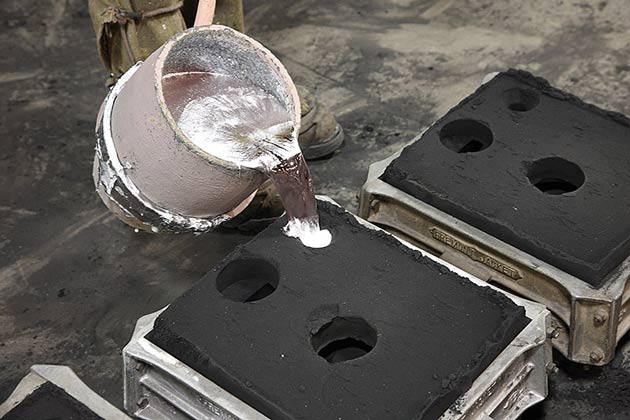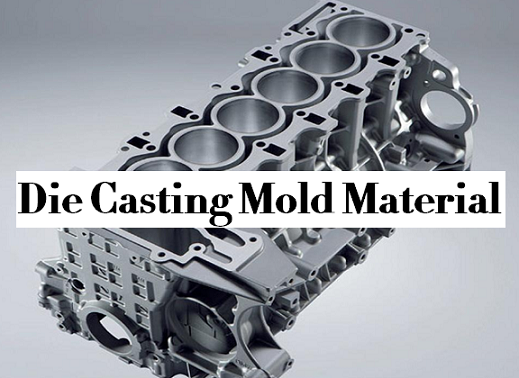Stahl Specialty Company - An Overview
What Does Stahl Specialty Company Mean?
Table of ContentsStahl Specialty Company Fundamentals ExplainedAll about Stahl Specialty CompanyThe Single Strategy To Use For Stahl Specialty CompanySome Known Incorrect Statements About Stahl Specialty Company Fascination About Stahl Specialty Company
The refined difference hinges on the chemical content. Chemical Comparison of Cast Light weight aluminum Alloys Silicon advertises castability by reducing the alloy's melting temperature level and boosting fluidness throughout spreading. It plays a vital function in permitting intricate molds to be loaded accurately. Furthermore, silicon adds to the alloy's stamina and put on resistance, making it beneficial in applications where sturdiness is vital, such as auto parts and engine components.It additionally improves the machinability of the alloy, making it easier to process right into completed products. This way, iron adds to the total workability of light weight aluminum alloys. Copper raises electric conductivity, making it beneficial in electrical applications. It likewise boosts corrosion resistance and includes in the alloy's general stamina.
Manganese adds to the toughness of light weight aluminum alloys and improves workability. It is typically utilized in wrought aluminum products like sheets, extrusions, and profiles. The existence of manganese help in the alloy's formability and resistance to breaking during construction procedures. Magnesium is a light-weight aspect that offers strength and influence resistance to aluminum alloys.
Zinc improves the castability of aluminum alloys and assists manage the solidification procedure throughout spreading. It enhances the alloy's toughness and hardness.
Some Known Facts About Stahl Specialty Company.
Since aluminum-silicon alloys have good spreading properties, high gas properties, straightforward processes, and excellent rust resistance, aluminum-silicon alloys are most commonly made use of in the die-casting industry in your home and abroad. At the same time, aluminum-silicon alloys are additionally fairly very early and commonly recognized alloys developed and used in die-casting. After continuous research and renovation, the majority of the current global mainstream aluminum-silicon alloys have been settled and are absolutely nothing greater than A356, A360, A380, ADC12, B390, and A413.
The main thermal conductivity, tensile strength, yield strength, and elongation differ. Among the above alloys, A356 has the highest thermal conductivity, and A380 and ADC12 have the cheapest.

How Stahl Specialty Company can Save You Time, Stress, and Money.
In precision casting, 6063 is well-suited for applications where elaborate geometries and high-grade surface area finishes are paramount. Examples consist of telecommunication units, where the alloy's premium formability permits sleek and visually pleasing layouts while preserving structural integrity. In the Illumination Solutions sector, precision-cast 6063 parts produce sophisticated and reliable illumination fixtures that call for complex shapes and great thermal efficiency.
(https://www.demilked.com/author/stahlspecialc/)
The A360 exhibits premium elongation, making it ideal for complicated and thin-walled components. In accuracy casting applications, A360 is appropriate for sectors such as Consumer Electronics, Telecommunication, and Power Devices.

In precision spreading, aluminum 413 radiates in the Customer Electronics and Power Devices markets. This alloy's superior rust resistance makes it an excellent option for outdoor applications, making sure durable, resilient items in the mentioned markets.
Our Stahl Specialty Company Diaries
The aluminum alloy you select will considerably affect both the casting process and the homes of the last product. Due to the fact that of this, you should make your decision very carefully and take an informed method.
Figuring out one of the most appropriate aluminum alloy for your application will certainly imply considering a broad selection of qualities. These relative alloy characteristics adhere to the North American Pass Away Casting Organization's standards, and we have actually split them right into 2 categories. aluminum foundry. The very first classification addresses alloy attributes that impact the production process. The second covers features impacting the residential properties of the end product.
The alloy you select for die spreading directly influences several facets of the casting process, like how simple the alloy is to collaborate with and if it is prone to casting defects. Hot cracking, additionally recognized as solidification cracking, is a normal die spreading flaw for light weight aluminum alloys that can cause inner or surface-level tears or splits.
More About Stahl Specialty Company
Certain light weight aluminum alloys are a lot more at risk to warm breaking than others, and your choice must consider this. One more typical issue found in the die casting of aluminum is die soldering, which is when the actors adheres to the die walls and makes ejection tough. It can harm both the cast and the die, so you must search for alloys with high anti-soldering properties.
Rust resistance, which is already a noteworthy characteristic of aluminum, can differ significantly from alloy to alloy and is a crucial characteristic to think about relying on the ecological problems your item will be revealed to. Wear resistance is another residential property typically looked for in light weight aluminum items and can differentiate some alloys.